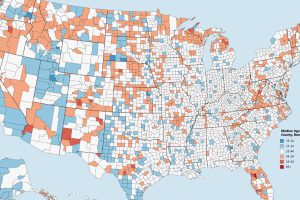
Which counties have the youngest populations, and which are meccas for aging retirees? This map shows the median age of every county in the United States. Read more
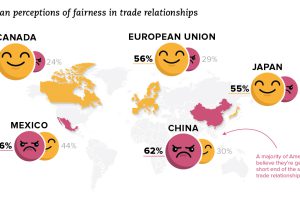
How does the U.S. view its trade relationships? See this recent data from Gallup, which shows how views have changed over time, as well as by political party. Read more

Rental markets are heating up all over the U.S. and Canada, but certain cities are now clearly in a league of their own. Where does your city fall? Read more
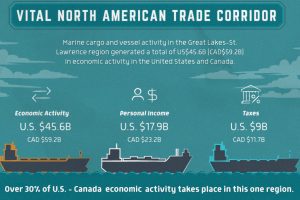
Every year, 230 million metric tonnes of cargo transits through Great Lakes-St. Lawrence waterways to generate a $45.6 billion economic impact. Read more
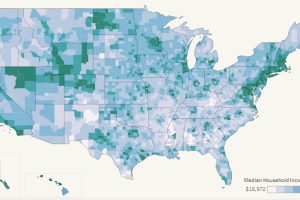
This interactive map allows you to pull data on median household income for all 3,000+ U.S. counties in existence, allowing for some interesting insights. Read more
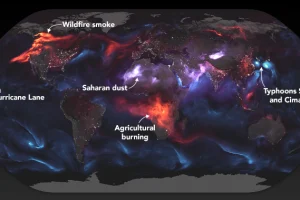
These stunning images from NASA give a whole new perspective on the massive wildfires engulfing the west coast of North America. Read more

Where do millionaires live in the country? See millionaires by state – in terms of absolute numbers and percentage concentration – in this compelling visual. Read more
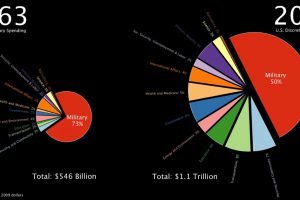
This stunning one minute animation breaks down U.S. government discretionary spending from 1963 all the way until today. Read more
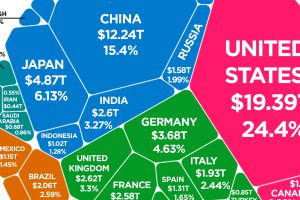
Latest estimates put the world economy at about $80 trillion in nominal GDP. Here is how each individual country stacks up in terms of size. Read more
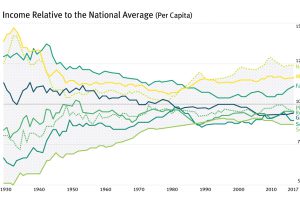
For most of the century, the geographical difference in per capita incomes has been narrowing – but it appears this trend has now reversed in the U.S. Read more

